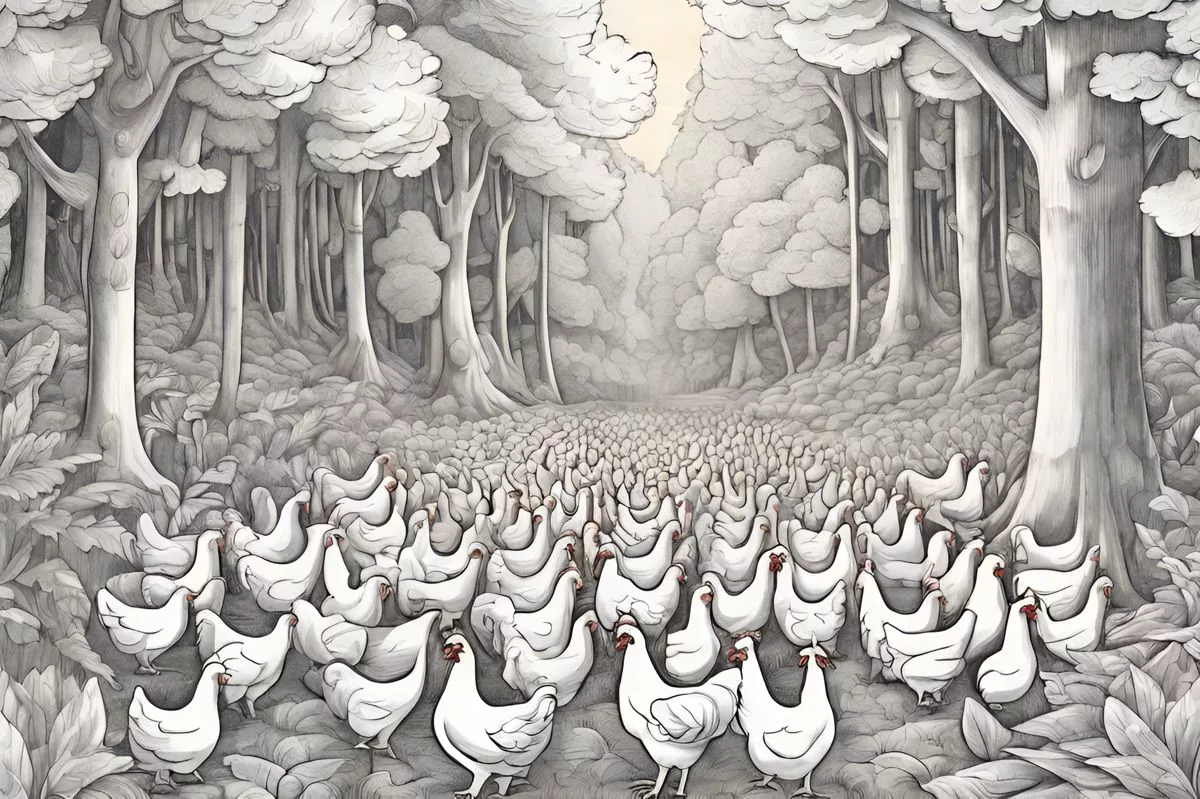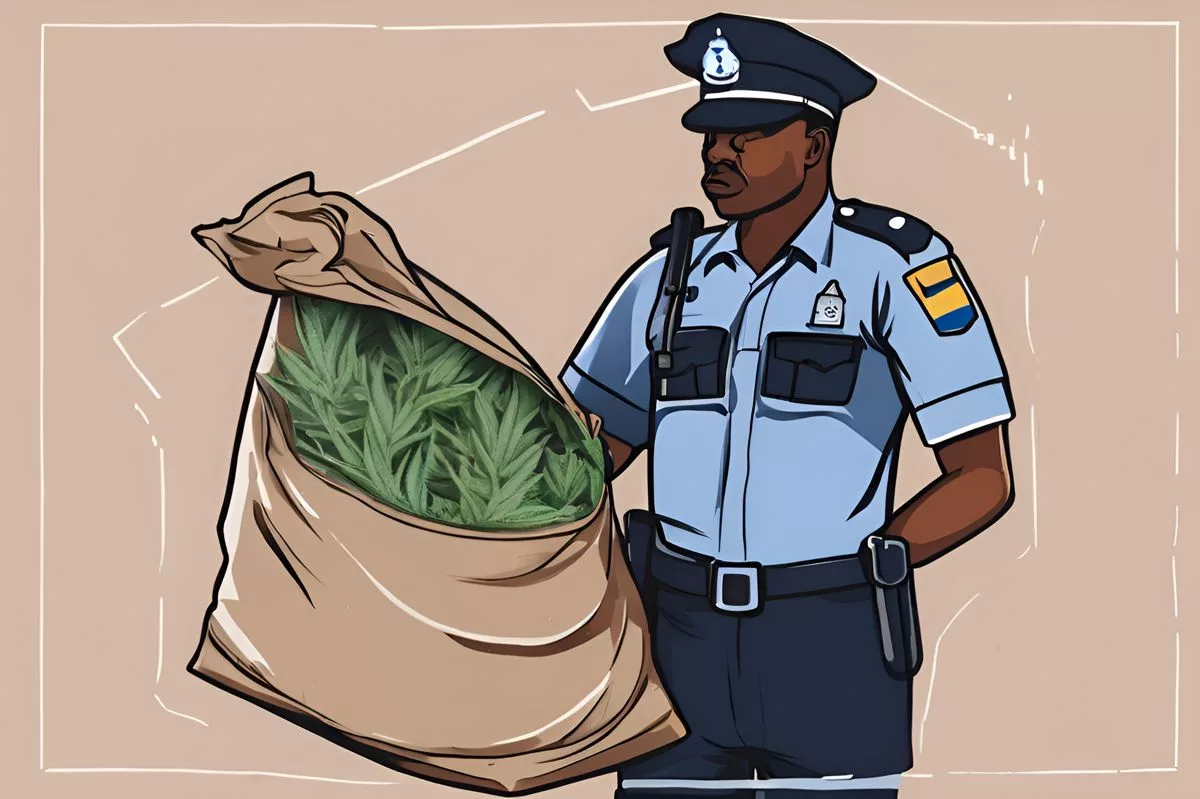An alleged religious sacrificial ritual involving live poultry in Newlands Forest caused an evacuation and the execution of 62 chickens by the Table Mountain National Park security team. The incident raises concerns about balancing religious freedom, animal rights, and public safety. Respect for animals, adherence to by-laws, and open dialogue about such sensitive issues are crucial for a harmonious coexistence of all beings in communal spaces. The need for increased vigilance and education in humane treatment of animals is also highlighted.
Unsettling Event in Newlands Forest: A Clash of Religion, Animal Rights, and Public Safety. A group allegedly conducting a religious sacrificial ritual involving live poultry in the Newlands Forest caused an immediate evacuation. The Table Mountain National Park security team executed 62 chickens as a result. The incident raises concerns about balancing religious freedom, animal rights, and public safety. Respect for animals, adherence to by-laws, and open dialogue about such sensitive issues are crucial for a harmonious coexistence of all beings in communal spaces.
Disturbance in Newlands Forest
A sunny and tranquil Saturday in the Newlands Forest on February 10th was disrupted when forest visitors and animal lovers stumbled upon a group allegedly conducting a religious sacrificial ritual. The ritual involved live poultry, a sight that was alarming and unexpected for the regular visitors to the forest. Consequently, this incident led to an immediate evacuation of approximately 80 people and 62 chickens executed by the Table Mountain National Park (TMNP) security team.
The first sign of alarm was triggered around 9:39am when the TMNP security WhatsApp group was flooded with unusual messages. These messages reported a congregation moving into the forest, carrying live chickens, a sight that was quite peculiar. The incident quickly gained attention on social media where the severity of the situation was evident. Comments on the Newlands Forest Conservation Group’s Facebook page hinted at a potential case of animal abuse, with disturbing descriptions of “chickens being carried upside down by their wings.”
Reaction from the Authorities
The spokesperson for SANParks law enforcement, Lauren Clayton, confirmed the incident, stating that the group was escorted out of the forest due to their breach of park rules and regulations. She emphasized that any gathering or event, especially one involving animals, needs an official permit – a requirement that the group failed to meet.
No prior information or consultation was provided by the group to SANParks about their intended plans in the forest. The security personnel in the forest accounted for a total of 62 chickens. Subsequently, the SPCA took responsibility for the care of these animals.
Belinda Abrahams, the Cape of Good Hope SPCA’s communication manager, shed more light on the event. She confirmed that the chickens were intended for a religious sacrifice and that the leader of the group was given a formal warning regarding animal mistreatment. Abrahams stressed the importance of following correct protocols to guarantee the humane treatment of animals.
Education and Enforcement of Animal Welfare
Bystanders directed Ayanda Ngcope, an inspector from the SPCA, to the gathering. Upon his arrival, Ngcope addressed the inappropriate handling of the animals, specifically the individuals who were seen carrying chickens by their wings. As an educational step, the group was taught about the humane treatment of animals and the need for humane slaughter.
The incident highlighted significant concerns about the clash between religious and cultural practices with animal rights and public health safety. It draws attention to the City’s Animal Keeping By-law, which maintains that any animal intended for slaughter must be processed at a registered abattoir. The by-law also states that religious and cultural slaughters must be declared in writing 14 days prior to the event. Moreover, the appropriate disposal of animal waste products is also stressed to prevent public health nuisances.
Balancing Religious Freedom, Animal Rights, and Public Safety
This incident in Newlands Forest stands as a stark reminder of the intricate balance between religious freedom, animal rights, and public safety. It highlights the need for increased vigilance, respect for animals, adherence to by-laws, and the importance of open dialogue about such sensitive issues.
While religious and cultural practices need to be respected, it is also crucial to ensure that these do not infringe upon the rights of animals or compromise public safety and health. As a society, we must learn to navigate these delicate intersections with grace, empathy, and respect, ensuring a harmonious coexistence of all beings in our communal spaces.
What happened in Newlands Forest on February 10th?
A group allegedly conducted a religious sacrificial ritual involving live poultry, which led to an evacuation of approximately 80 people and 62 chickens executed by the Table Mountain National Park security team.
What concerns does this incident raise?
This incident raises concerns about balancing religious freedom, animal rights, and public safety. It highlights the need for increased vigilance, respect for animals, adherence to by-laws, and the importance of open dialogue about such sensitive issues.
What were the reactions of the authorities?
The group was escorted out of the forest due to their breach of park rules and regulations. The spokesperson for SANParks law enforcement emphasized that any gathering or event, especially one involving animals, needs an official permit – a requirement that the group failed to meet. The SPCA took responsibility for the care of the 62 chickens.
What is the importance of education and enforcement of animal welfare?
The incident highlighted significant concerns about the clash between religious and cultural practices with animal rights and public health safety. It draws attention to the City’s Animal Keeping By-law, which maintains that any animal intended for slaughter must be processed at a registered abattoir. The by-law also stresses the appropriate disposal of animal waste products to prevent public health nuisances.
How can we balance religious freedom, animal rights, and public safety?
While religious and cultural practices need to be respected, it is crucial to ensure that these do not infringe upon the rights of animals or compromise public safety and health. As a society, we must learn to navigate these delicate intersections with grace, empathy, and respect, ensuring a harmonious coexistence of all beings in our communal spaces.
What is the role of open dialogue in balancing these concerns?
Open dialogue about such sensitive issues is crucial for a harmonious coexistence of all beings in communal spaces. It helps to address concerns and find solutions that respect religious freedom, animal rights, and public safety.












